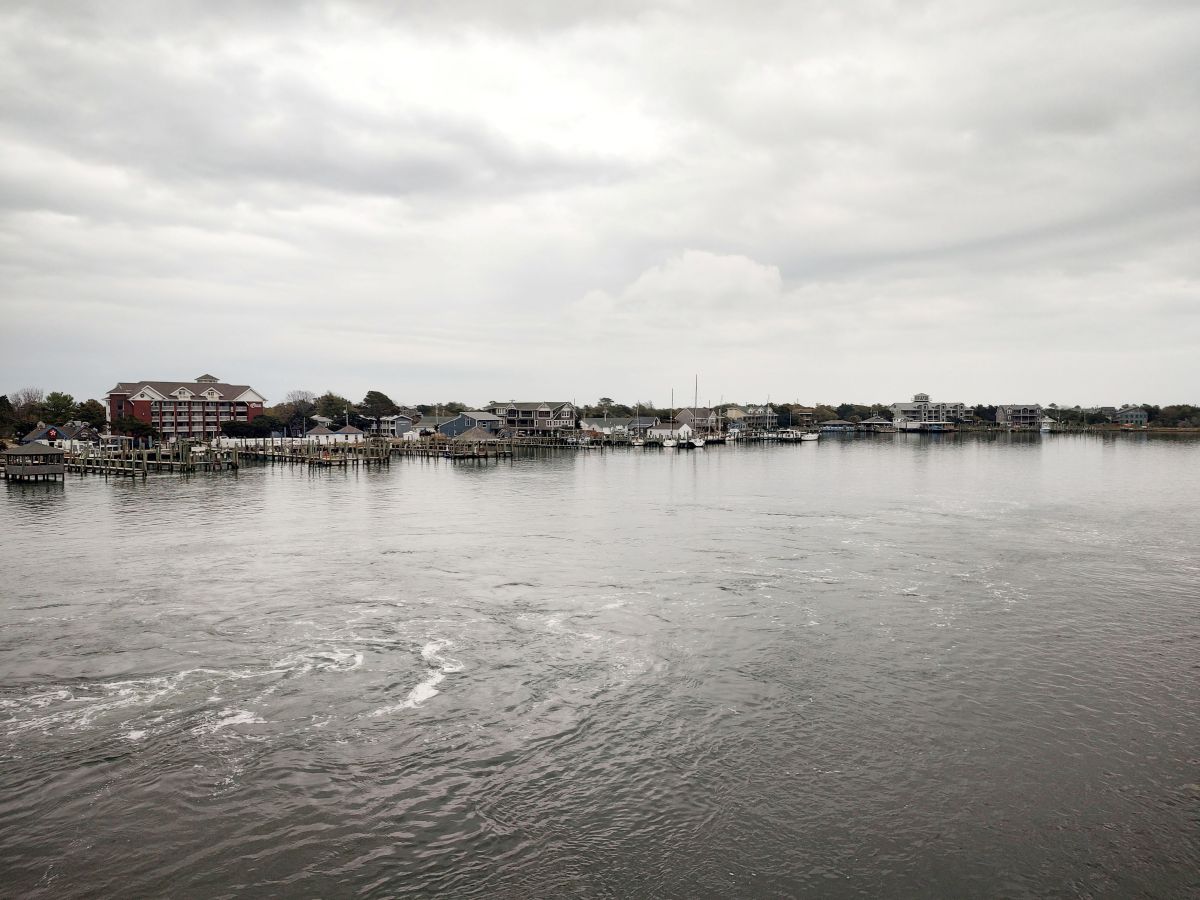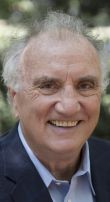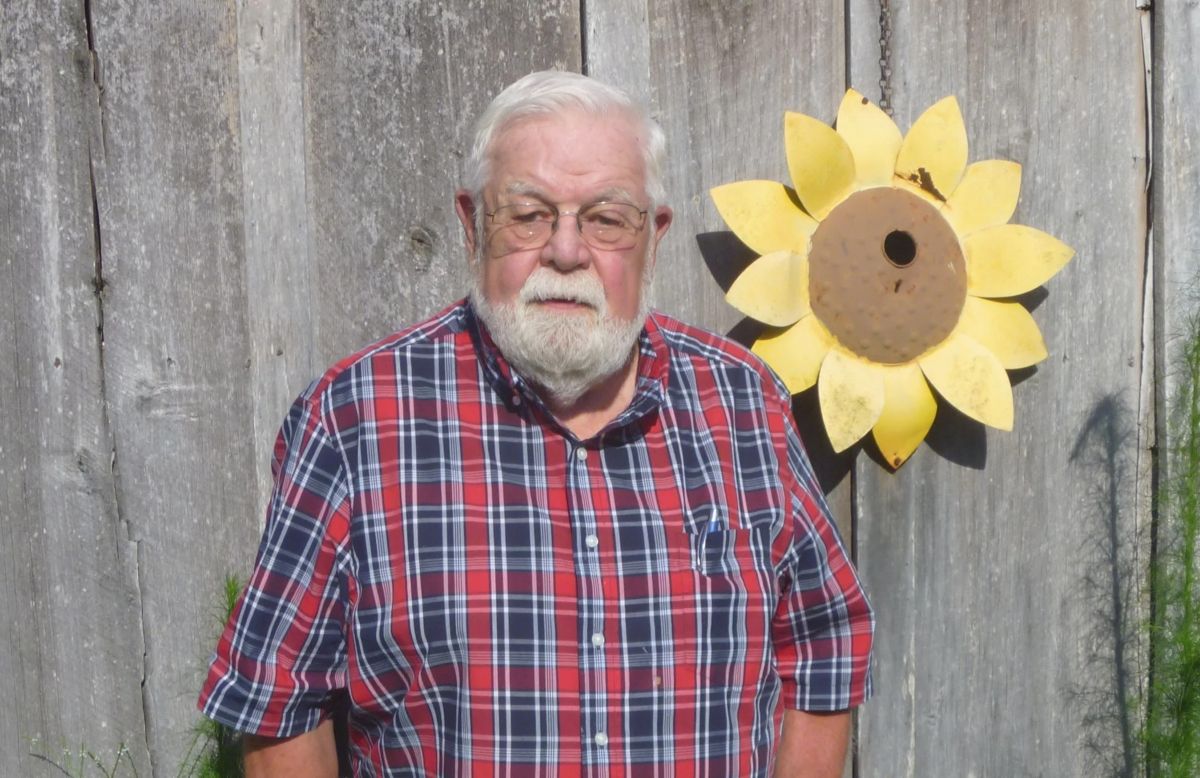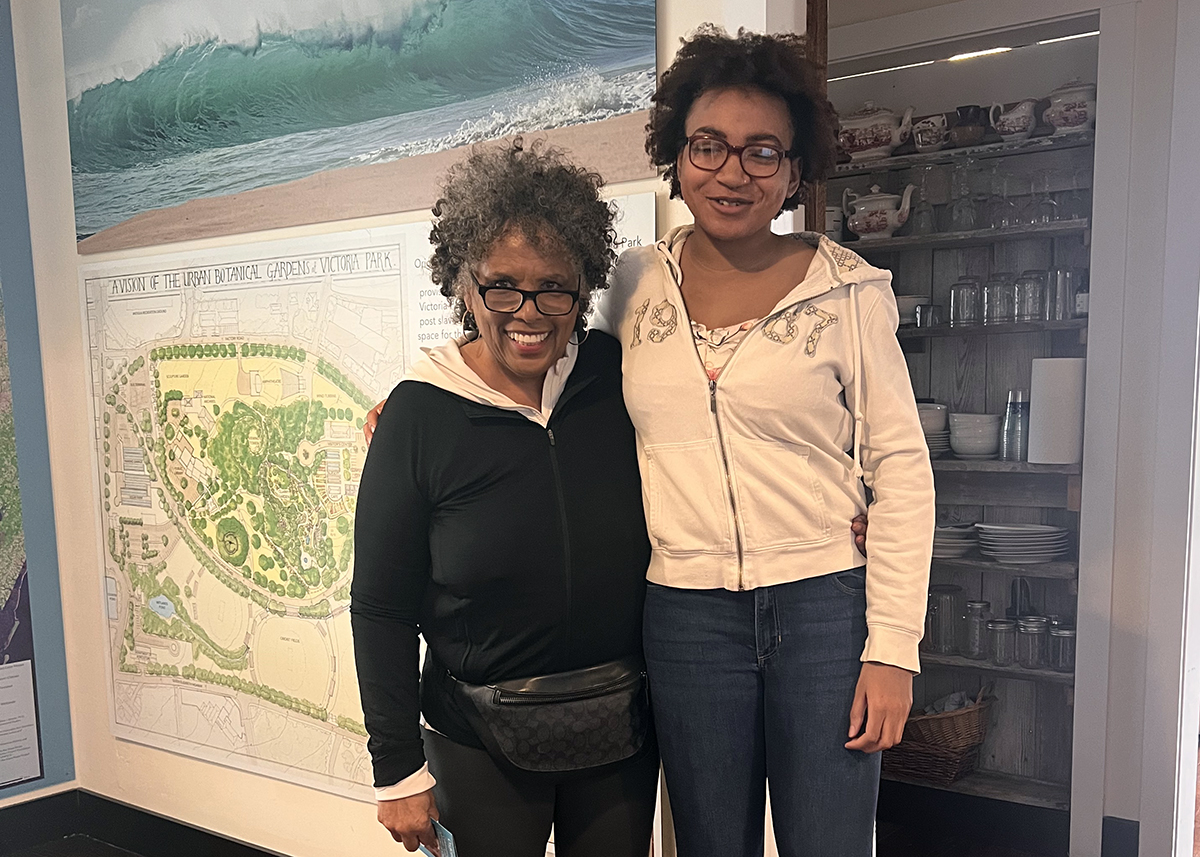
The first chapter of a recently published book about Ocracoke’s unique dialect begins with the imagined experience of a visitor’s first time taking the ferry from Swan Quarter across Pamlico Sound to Ocracoke Village.
During the trip to the 14-mile-long island only accessible by boat or light aircraft, the visitor decides to explore the ferry, pausing upon hearing a group speak a sort-of familiar dialect they can’t quite place.
Supporter Spotlight
“You greet the group and then make the same mistake as hundreds of tourists before you, by asking ‘Where are y’all from?’ The response, ‘right here,’ accompanied by uproarious laughter, leaves you disoriented,” the scenario continues.
The mistake is “so frequent that it is part of island lore, passed down by O’Cockers – Ocracoke residents who trace back their family lineage on the island for generations.”
This encounter in the first chapter of “Language and Life on Ocracoke: The Living History of the Brogue,” sets the scene for an exploration into the once-prominent dialect now only spoken by a few hundred on the island.
Published by UNC Press, authors are North Carolina State University English professors Jeffrey Reaser and Walt Wolfram, and Ocracoke Preservation Society board member Candy Gaskill, a fourth-generation resident.
“With this prolonged and comprehensive approach to the region, the authors document the island’s changes, providing readers with a deeply researched, empathetic, and engagingly written snapshot of one of North Carolina’s most cherished places, one with a linguistic heritage worth celebrating,” UNC Press said in a release.
Supporter Spotlight
Wolfram told Coastal Review in an interview that he really wants people to understand that Ocracoke had this rich legacy of language.
“What’s Ocracoke famous for? Well, it’s famous for Blackbeard,” Wolfram said about the pirate that was beheaded on the island in 1718. “It’s also famous for its language,” but O’Cockers are losing this tradition that has been a part of the island culture for centuries.
The dialect was “once an iconic trait of the 200-mile chain of Outer Banks islands” but is “now merely a whisper in the region.” Now, there are less than 200 who speak some semblance of the traditional brogue, the book states, and “there are sure signs that the traditional Brogue will soon become extinct.”
Wolfram said he thinks “there are certain things that are strongly associated with that community, and the language has been one of them, and now it’s threatened. What the book does is remind them of that tradition. So in a sense, (the brogue) will be remembered with examples even when it is almost gone.”
This is their third book on Ocracoke and builds on Wolfram’s 1997 “Hoi Toide On The Outer Banks: The Story of the Ocracoke Brogue.” “Hoi Toide” is the brogue pronunciation of high tide — the long i vowel is pronounced as “oy” – and is the origin of the nickname, hoi toiders.
Reaser said in an interview that they “really wanted this to be the first linguistics beach read” and be a bit of an introduction to the linguistics, which is the study of language and structure, to make it accessible for all audiences.
The book is broken up into 24 short chapters, which can be read in any order, and touch on what the brogue is and who speaks it, if the brogue is Shakespearean English or if it’s pirate talk, how to study language, accents and dialects, about African American and Latino communities on Ocracoke, the weather, how the language is evolving, and speculation on how the brogue will evolve, or disappear.

The brogue isn’t Elizabethan, by the way, and it’s “not just pirate talk” (their emphasis) despite Ocracoke’s ties with Blackbeard.
What is it then? The short answer is that the “primary finding was that it was an English dialect that had been influenced by Gaelic languages and other English dialects that had previously been influenced by Gaelic languages.”
“We’re focused on Ocracoke, and we want to preserve and celebrate that dialect and that tradition, but there is another purpose of just getting people to understand more generally, that this is how languages work, this is how dialects work. That they’re always patterned and systematic,” Reaser explained. “Even when there’s a dialect that isn’t celebrated the way that Ocracoke tends to be, that is something that people should take seriously and value.”
Of special note is the companion website with more than 80 QR codes that link to sound or video clips on ocracokebrogue.com, all pulled from their extensive collection of oral histories, media clips, documentary footage and other materials.
“You don’t want to just read about it, you want to hear what it actually sounds like,” Wolfram said.
A peek between the pages
Many of the chapters are based on stories from villagers, such as the first chapter, “Do they take American money over there?” That’s coming straight from the O’Cockers’ stories, Reaser said.
There’s even an anecdote in the book about a British Broadcasting Co. crew that traveled to Ocracoke with the intention of having residents recite lines from Shakespeare’s plays.
Reaser said that having the BBC visit was a “really funny experience,” because they were sure the story was that Ocracoke had preserved Elizabethan English.
“We’re trying to tell them otherwise,” he said, and tried to direct their attention to how interesting the community is with its “really rich mix of all these historical traditions,” but they stuck with their story.
“They actually had the complete works of Shakespeare, and they’re trying to get locals to read it,” he said, expecting it to sound like they were at the Globe Theater, “which is so insulting.”
So, some of the performers in the community recognized what was happening, and decided to put on their best British accent, and overdo the stage performance.
“What the BBC captured was something that’s not even close to the local dialect,” Reaser said, but they aired it, and they must have received enough feedback because you can’t find it anywhere on their website. An updated version has been released but it still pushes the Elizabethan myth.
Wolfram said the publication features stories that people aren’t necessarily aware of as well, like the prominence of the one African American family that moved there in 1865 and maintained the family as a unit until the late 2000s, and how men’s and women’s speech patterns were affected by changing economic drivers, namely the village increasingly depending on tourism.
“We want people to remember how the Black family fit and didn’t fit into the community,” Wolfram said.
Women were in the service industry as tourism grew for the village while men continued to focus on water-related work, Reaser said. The brogue then became “crystallized as this artifact of masculinity, where it never had that in the past.”
Appreciating Ocracoke
Wolfram first heard about Ocracoke as a new professor at N.C. State in 1992.
In the acknowledgement, Wolfram explained that he and his wife decided to travel the state to experience different communities. While explaining these trips to his colleagues, another faculty member told him to “take a trip to Ocracoke, where ‘the people speak Elizabethan English.’”

Wolfram said he recognized the comment to be a “simplified romantic myth often associated with long-term isolated language varieties such as Appalachian English, but I was intrigued.”
That first trip was the catalyst to him devoting more than three decades and taking hundreds of trips to the island to learn more about the village’s families and their history.
When Reaser was a graduate student at N.C. State in 2000, he joined Wolfram on a trip and became just as enthralled with Ocracoke.
The two emphasized how grateful they are to have been welcomed over the years.
There’s a real love of the community and people who live there. “They’re so generous to us. It’s an incredible experience,” Reaser said.
Wolfram said the residents “have been incredibly collaborative and cooperative with us, and we can’t thank them enough for that.”
He feels that when researchers study a community, it’s nice for academics and their reputation, “but we want it to be meaningful” for the communities who give their time and resources.
“We do these sorts of sophisticated analyzes, but what does the community get out of it?” Wolfram continued, explaining that he finds it “ethically inappropriate” when academics go to a community for information and never see them again.
People need to know what you’re doing with the stories, histories and cultures they share with you, and how what you’re doing can help the community, Wolfram said, adding he and his team try to help with any project or program they can as a way to thank the community for “being so generous in terms of talking to us, working with us, and allowing us in.”







